Designed for Efficiency
Designed for Efficiency
Adopt the FUTURE of Supply Chain Management, TODAY,
with Leena AI's Work Assistant
with Leena AI's Work Assistant
Adopt the FUTURE of Supply Chain Management, TODAY, with Leena AI's Work Assistant
Trusted by global Fortune 500 enterprises






The pressing need for AI in supply chain management
50%supply chain organizations will use AI-enabled optimization by 2030
Report by Gartner
79%supply chain executives believe that AI will have a big impact on their business in the next 3 years
Report by Deloitte
Get your very own sidekick for Efficient Supply Chain Management
Your unfair advantage in supply chain management
Process automation
The work assistant can automate routine tasks such as order processing, invoicing, and shipment tracking.
The work assistant can automate routine tasks such as order processing, invoicing, and shipment tracking.

Communication and collaboration
The work assistant can facilitate communication and collaboration between different departments and stakeholders in the supply chain.
The work assistant can facilitate communication and collaboration between different departments and stakeholders in the supply chain.
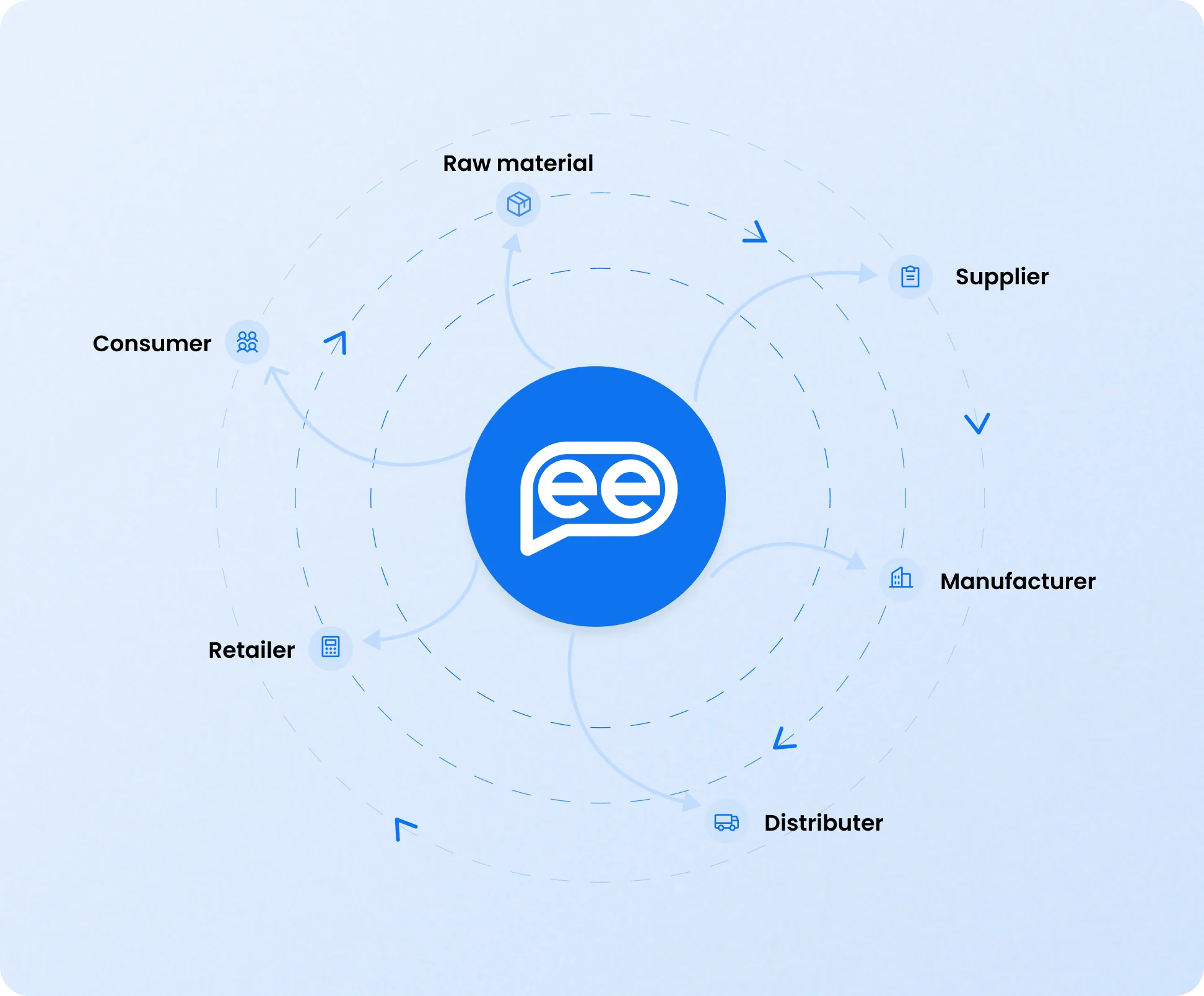
Continuous improvement
The work assistant can use machine learning to analyze data and identify areas for continuous improvement in the supply chain.
The work assistant can use machine learning to analyze data and identify areas for continuous improvement in the supply chain.
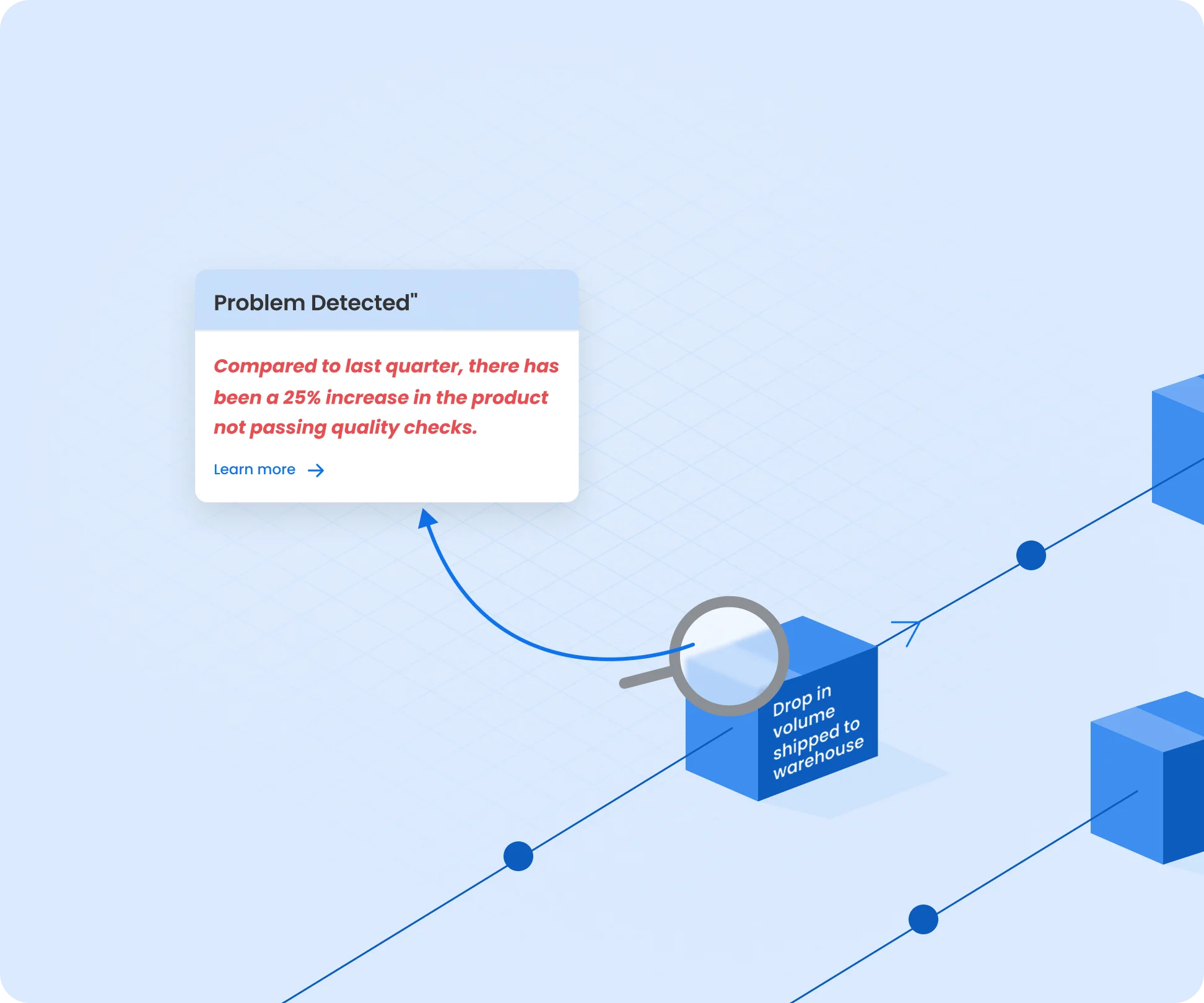
Providing support at every stage of the supply chain
The work assistant can provide support to team members, such as explaining company policies and procedures and answering frequently asked questions.
The work assistant can provide support to team members, such as explaining company policies and procedures and answering frequently asked questions.

Predictive analytics
The work assistant can use predictive analytics to forecast demand, identify potential bottlenecks, and suggest optimizations to the supply chain, based on the prompt from the user.
The work assistant can use predictive analytics to forecast demand, identify potential bottlenecks, and suggest optimizations to the supply chain, based on the prompt from the user.
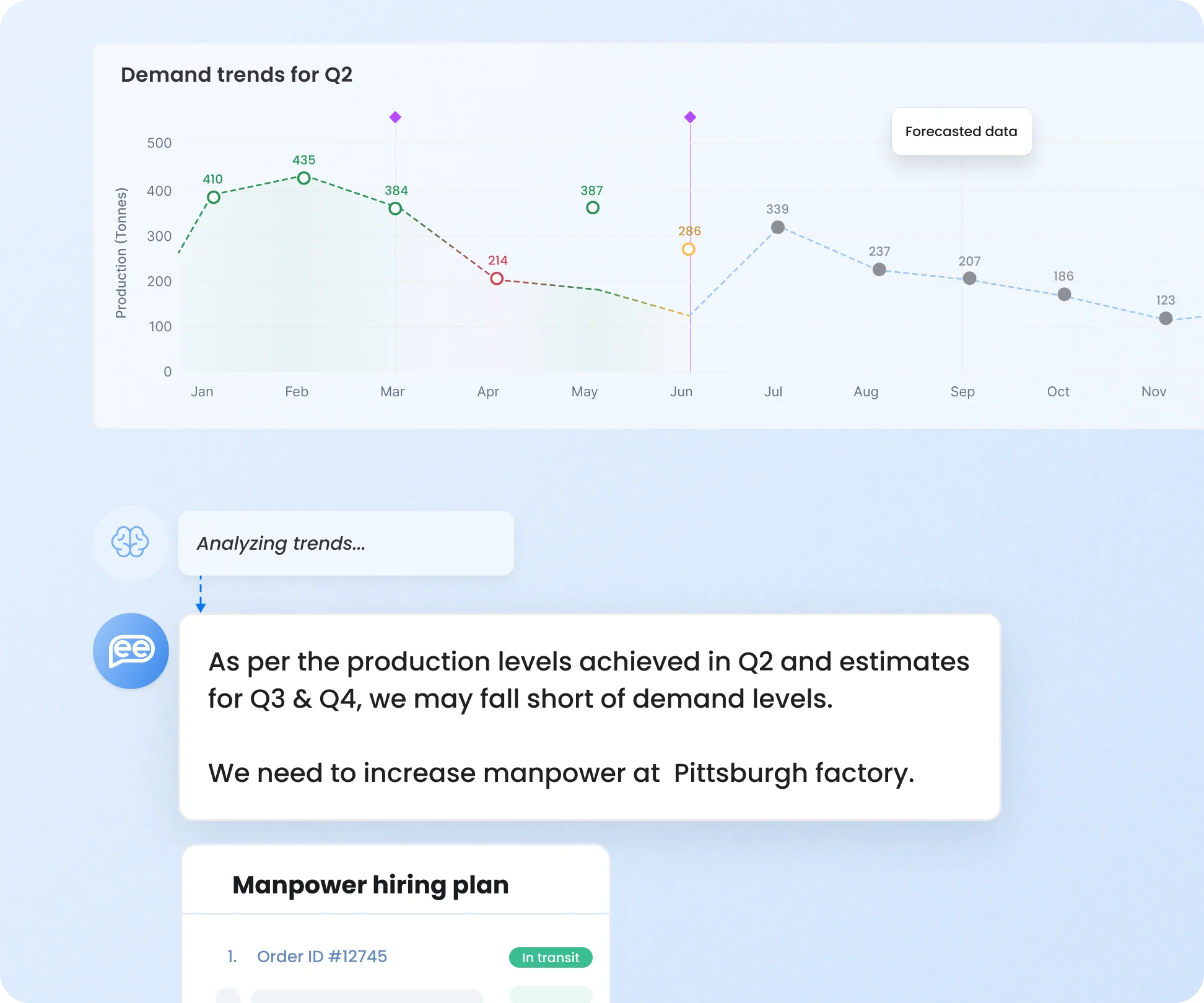
Real-time data analysis and reporting
The work assistant can provide real-time insights into supply chain operations, such as inventory levels, demand forecasting, order status, and delivery schedules.
The work assistant can provide real-time insights into supply chain operations, such as inventory levels, demand forecasting, order status, and delivery schedules.
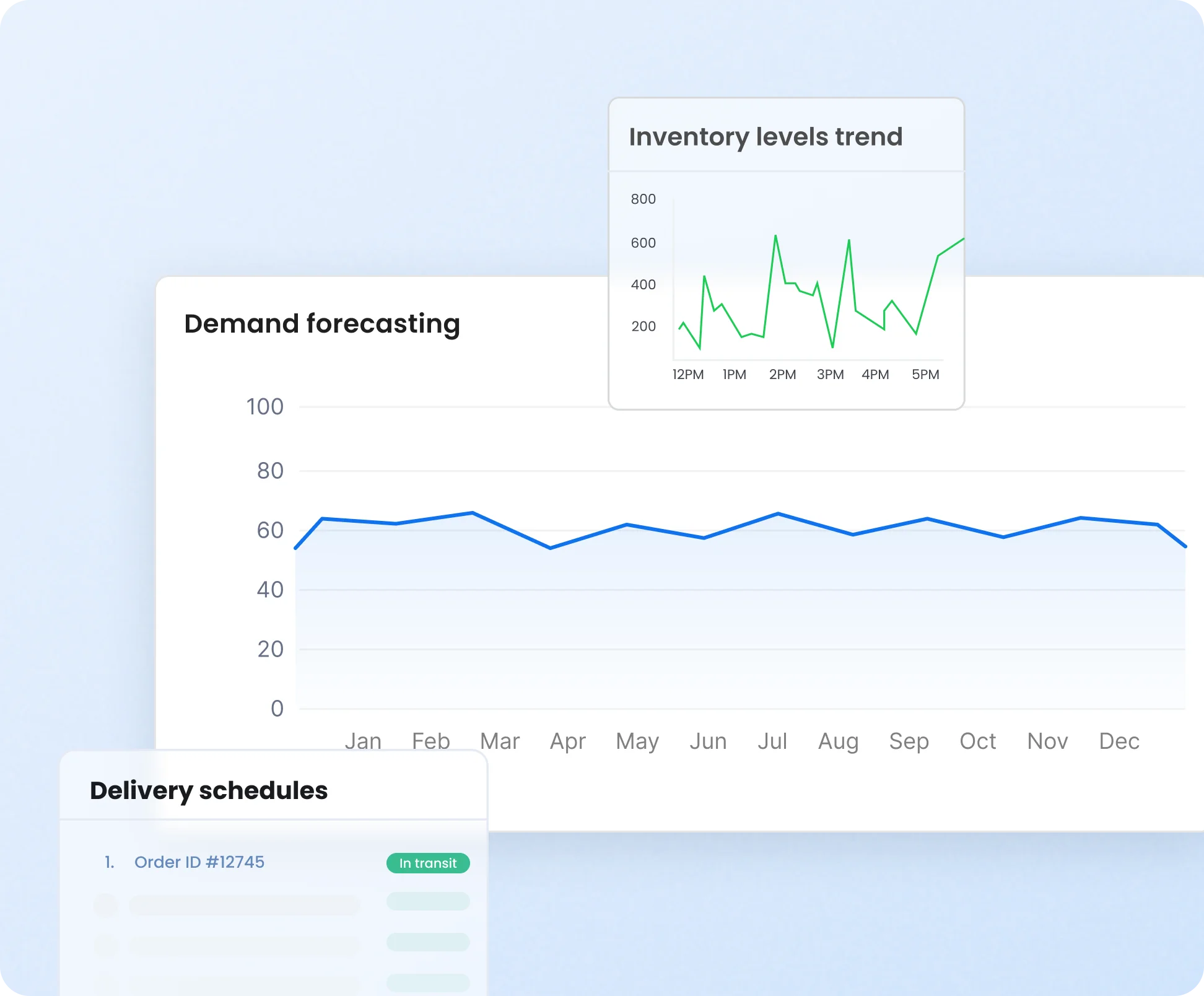
Agentic AI for enterprise
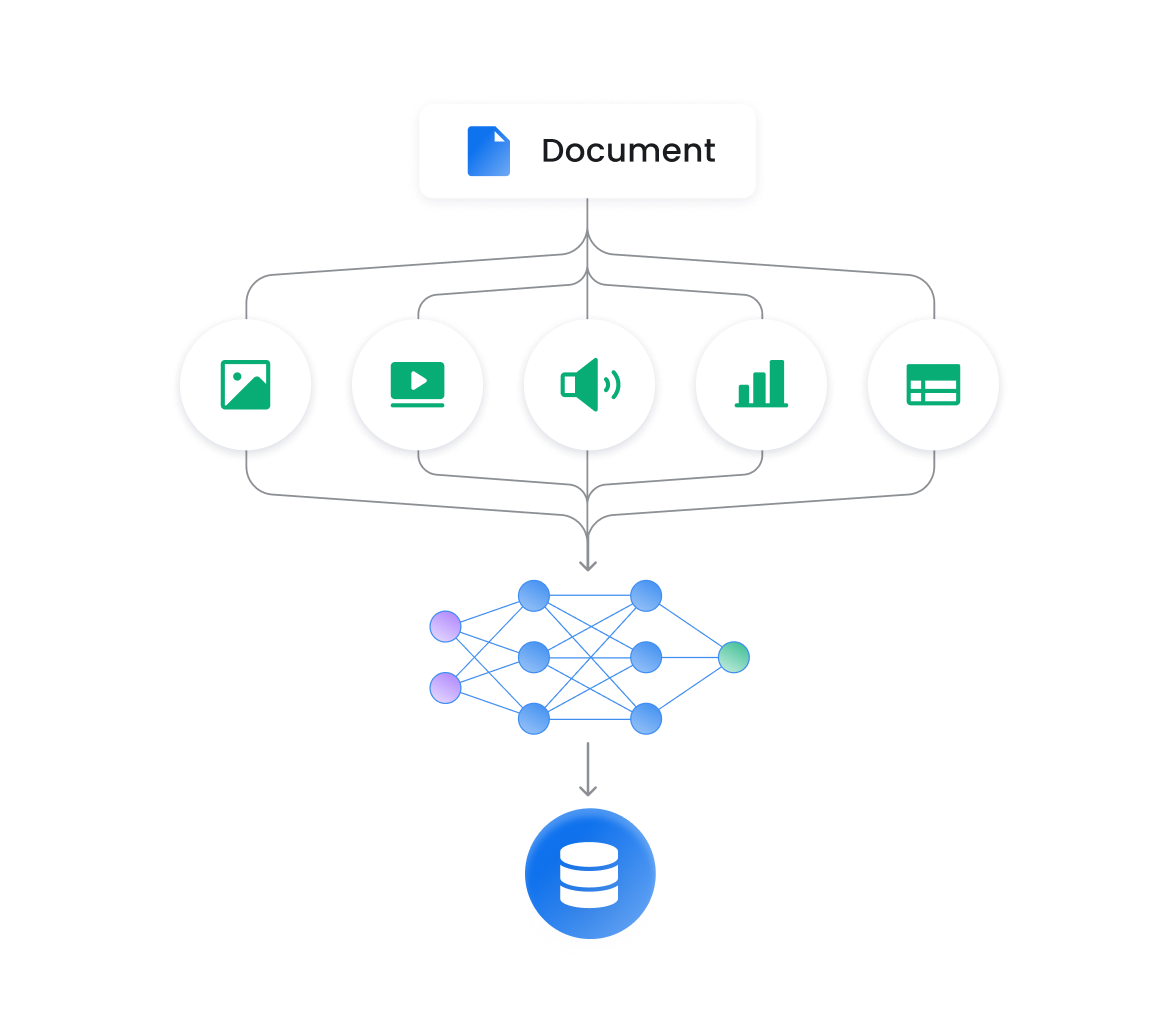
Multimodal support
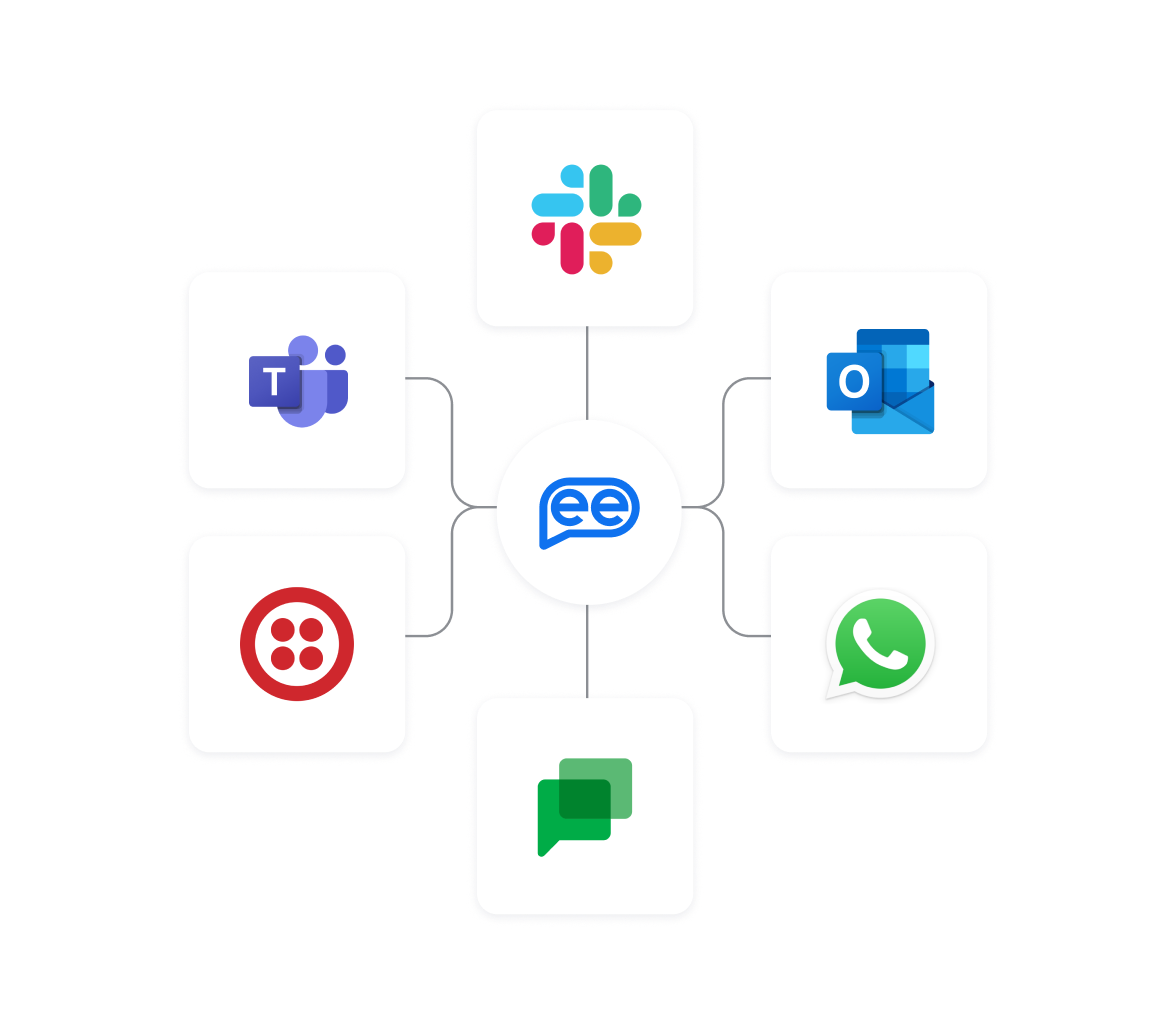
Multichannel support

Multilingual support
Drive success with AI-powered intelligence and analytics
Business intelligence & analytics across enterprise applications
Make informed decisions backed by highly customized reports that can be generated on the go, thanks to WorkLMTM. Leena AI can give you useful insights into process delays, Inventory management, warehousing roadblocks, production scheduling, and much more. Your assistant can also schedule these reports to be delivered to you regularly.
Talk to the experts

Seamless integrations for enhanced functionality












See all integrations
Frequently asked questions
Have a question that is not answered? You can contact us at support@leena.ai
What is operations and supply chain management?
Operations and supply chain management is the discipline concerned with overseeing the processes, activities, and resources involved in the production and delivery of goods and services. It encompasses planning, coordinating, and controlling various operations, including procurement, inventory management, production, logistics, and distribution. The goal of operations and supply chain manageme
Can supply chain be automated?
Supply chain can be automated through the use of technology and digital tools. Automation in the supply chain involves leveraging technologies such as artificial intelligence, robotics, internet of things (IoT), and data analytics to streamline and optimize various processes. This includes automating inventory management, order processing, shipment tracking, invoicing, and demand forecasting. Automation helps enhance efficiency, reduce errors, improve visibility and transparency, enable real-time tracking, and enable faster decision-making, ultimately leading to a more agile and responsive supply chain.
How is AI used in supply chain?
AI is used in supply chain management to automate processes, improve communication and collaboration, enable continuous improvement, provide support throughout the supply chain, and utilize predictive analytics for decision-making. With process automation, routine tasks like order processing and invoicing can be automated. AI-powered chatbots can facilitate communication and collaboration between stakeholders. Machine learning enables data analysis for identifying areas of improvement. Predictive analytics helps in demand forecasting and optimization suggestions. Real-time data analysis and reporting provide insights into inventory, demand, orders, and deliveries
What is the effect of AI on operations and supply chain management?
AI has a transformative effect on operations and supply chain management. It enables automation of routine tasks, improves efficiency and accuracy, enhances communication and collaboration, facilitates predictive analytics for demand forecasting and optimization, enables real-time data analysis and reporting, and supports continuous improvement. AI-driven technologies streamline processes, reduce costs, minimize errors, optimize inventory management, and enhance overall operational performance, leading to increased productivity, customer satisfaction, and competitive advantage in the dynamic supply chain landscape.
Will AI replace supply chain management?
No, AI will not replace supply chain management entirely. While AI has the potential to automate certain tasks and enhance decision-making processes, supply chain management involves a wide range of complex activities that require human expertise and strategic oversight. AI can augment and support supply chain management by improving efficiency, providing insights, and optimizing processes, but it cannot replace the need for human involvement in areas such as strategic planning, relationship management, and adapting to unforeseen circumstances. The combination of AI technologies and human expertise is likely to be the most effective approach in achieving optimal supply chain management outcomes.
Discover the power of Leena AI virtual assistant
Discover the power of Leena AI virtual assistant











